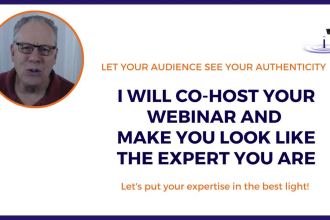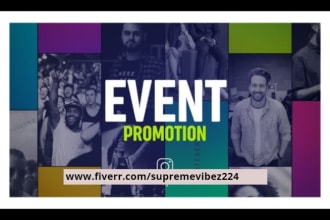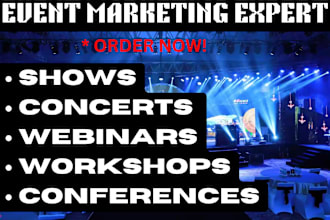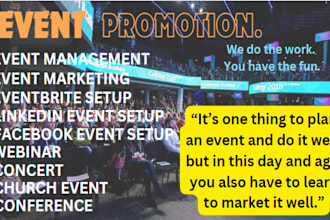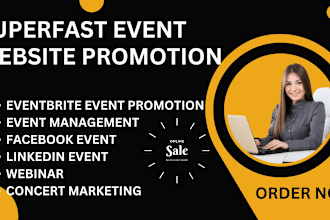Browse categories
Event Marketing
Market your community event with our event marketing experts
|282 Results
Sort by:
Event Marketing FAQs
What is event marketing and how can it help my business or organization?
Event marketing refers to a strategy that involves planning and organizing an event to promote your business, product, or service. It uses real-time audience engagement through methods like face-to-face (offline) interactions or online interactions in the form of social networking or chat boxes. Effective event marketing enables businesses to build brand awareness, boost engagement, generate leads, and drive sales. When done well, it helps your business gain a competitive edge, generate business, open up new marketing channels, connect with potential customers, and nurture customer loyalty. It’s also a valuable tool for educating your target audience about your product, service, or industry.
What types of events can be marketed using event marketing strategies?
Several types of events can be marketed, including: - Webinars. - Online marketing events. - Live streaming events. - In-person marketing events. - Trade shows. - Conferences. - Hybrid events. - Seminars. Fiverr has service providers capable of marketing virtual, offline, and other events. They can also provide additional services such as marketing funnel creation, event management and promotion, and marketing content creation. Want to know what a Fiverr service provider can offer? Visit their Gig page or drop them a line to learn more.
What are some effective ways to promote my event?
There are several effective strategies you can use to promote your event, such as: - Using remarketing to drive clicks and website traffic. - Leveraging social media to broaden your reach and generate more sign ups. - Building a dedicated event website that’s linked to your company website or creating an engaging landing page. - Creating dedicated pop-ups on your event website to encourage visitors to check out your event and sign up. - Using email marketing to reach your target audience. - Crafting compelling advertising materials. - Partnering with influential individuals such as influencers, celebrities, and local leaders. - Consider offering incentives to early birds. - Encouraging your audience to promote your event via user-generated content. - Using branding that’s specific to your upcoming event.
How far in advance should I start promoting my event?
Planning and promotion preparations will depend on factors like the scale of your event and the price of admission. However, you don’t want to be too late when planning to promote your event. In general, bigger events will require a longer prep time, while smaller events may be promoted in a shorter span of time. The consensus is that you should promote your event at least 6 to 8 weeks in advance. This allows your audience to make necessary preparations, such as travel arrangements. If you’re mounting a large event, start promoting it 3 to 6 months before. This allows you to build awareness, gather a sizeable audience, and prepare necessary elements like promotion strategies and hosting arrangements. Preparing ahead also gives you more time to remind potential attendees about your event and send out last-minute reminders or invitations.
How can I measure the success of my event marketing efforts?
Setting event KPIs allows you to measure your event marketing efforts’ success. To find the right KPIs to track, you’ll need to identify your goals and desired outcomes. Your event type and format will also influence which KPIs you’ll be using. Some of the common KPIs to measure include: - Event check-ins. - Number of tickets sold. - Event revenue. - Social media engagement. - Event revenue generated compared to costs incurred. - Event surveys (pre- and post-event). - Post-event sales. - Net promoter score. - Audience attendance. - Returning attendees. You also have to note which data collection points you want to use, which may include website traffic, event platforms, and analytics.
What are some common mistakes to avoid in event marketing?
Not paying attention to customer needs is one of the biggest mistakes you must avoid. You need to determine your potential attendees, their needs, and what they want to hear from you. Not outlining your goal or setting a strategy can also be costly. Without a clear goal or a solid strategy, measuring your success and optimally utilizing your resources can become an even bigger challenge. It’s also crucial that you communicate clearly and regularly with all the departments involved because planning an event is often complex and challenging. Clear and constant communication ensures everyone is on the same page and stays updated with the latest developments.





